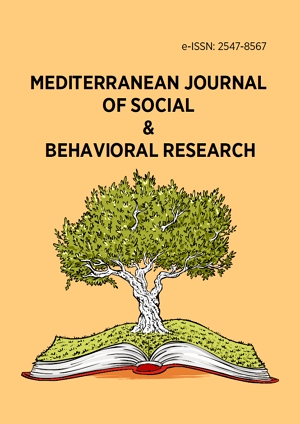Research Article
Influential agents in the online education diffusion at a Mexican University: What the Social Network Analysis Reveals
More Detail
1 Universidad Autónoma de Baja California, Mexico* Corresponding Author
Mediterranean Journal of Social & Behavioral Research, 1(1), July 2017, 1-11
Published: 01 July 2017
OPEN ACCESS 1063 Views 585 Downloads
ABSTRACT
Through a Social Network Analysis applied to a survey at a Mexican University the diffusion of online education dynamics in a 13 year period was determined. For the analysis, the 13 years was divided into four periods. Teachers answered the survey by identifying by name the people or University initiatives, including people outside the University, which influenced his decision to venture into online education. The most influential agents for each period were determined by their In-Degree value. For the analysis, inter and intra periods influence of agents was considered. Three agents who held great influence in the diffusion in the most part of the period where identified, one of which kept the higher In-Degree value among teachers, and slightly lower than the node of University initiatives that promote online education. Is considered that the level of online learning diffusion in this University have been very limited without the influence of two influential agents in the overall process.
CITATION (APA)
McAnally-Salas, L., Flores, M. C., Sandoval, J. O., & Lavigne, G. (2017). Influential agents in the online education diffusion at a Mexican University: What the Social Network Analysis Reveals. Mediterranean Journal of Social & Behavioral Research, 1(1), 1-11.
REFERENCES
- Asociación Nacional de Universidades, & Instituciones de Educación Superior. (2000). La educación superior en el siglo XXI: líneas estratégicas de desarrollo: una propuesta de la ANUIES. Anuies.
- Belanger, F., & Jordan, D. H. (2000). Evaluation and implementation of distance learning: technologies, tools, and techniques. Hershey, PA: Idea Group Pub.
- Dolence, M. G., & Norris, D. M. (1995). Transforming higher education: A vision for learning in the 21st century. Society for College & Univ.
- Horton, W., & Horton, K. (2003). E-Learning Tools and Technologies. Indianapolis, IN: Wiley Publishing.
- Malik, A. (2002). World Bank. Constructing Knowledge Societies: New Challenges for Tertiary Education. Pakistan Development Review, 41(2), 204-207.
- Mahony, M. J., & Wozniak, H. (2005, November). Diffusion of innovation and professional development in eLearning: The CHS eLearning resource case study. In Adelaide, Australia: 17th Biennial Conference of the Open and Distance Learning Association of Australia.
- McAnally-Salas, L. (2007). Factores contextuales y de formación docente que influyen en el diseño de cursos en línea (Tesis de Doctorado). Universidad Autónoma de Tamaulipas.
- McLoughlin, C. (2000). Beyond the halo effect: Investigating the quality of student learning online. In Proceedings Moving Online Conference.
- OECD. (1996). The Knowledge-Based Economy. Paris: Organisation for Economic Co-operation and Development.
- SEP. (2001). Programa Nacional de Educación 2001-2006. México, DF: Secretaría de Educación Pública.

 The articles published in this journal are licensed under the CC-BY Creative Commons Attribution International License.
The articles published in this journal are licensed under the CC-BY Creative Commons Attribution International License.